ChatGPT Search Engine Integrates Bing and Develops Chrome Extension to Replace Google
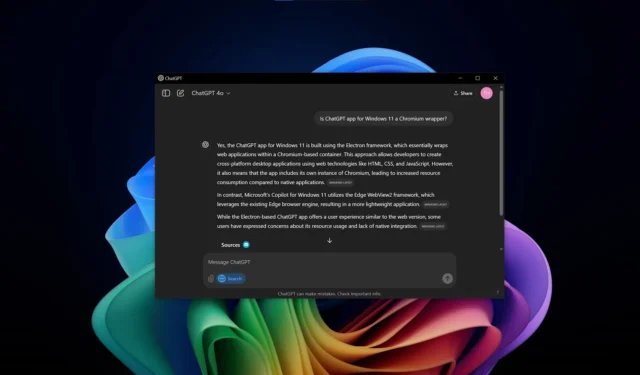
Microsoft’s investment in ChatGPT is leading the AI tool to explore new realms that could potentially impact even the major investor’s business interests, although it presents a sizable threat primarily to Google. Observations from Windows Latest reveal that the ChatGPT search engine predominantly utilizes Microsoft Bing (Bing.com) for the majority of its queries.
The results generated by ChatGPT’s search function, previously known as SearchGPT, mirror those of Bing. This pattern was evident across various queries. Although the arrangement of websites might differ, ChatGPT still references many of the same sites that Bing indexes on its first and second pages.
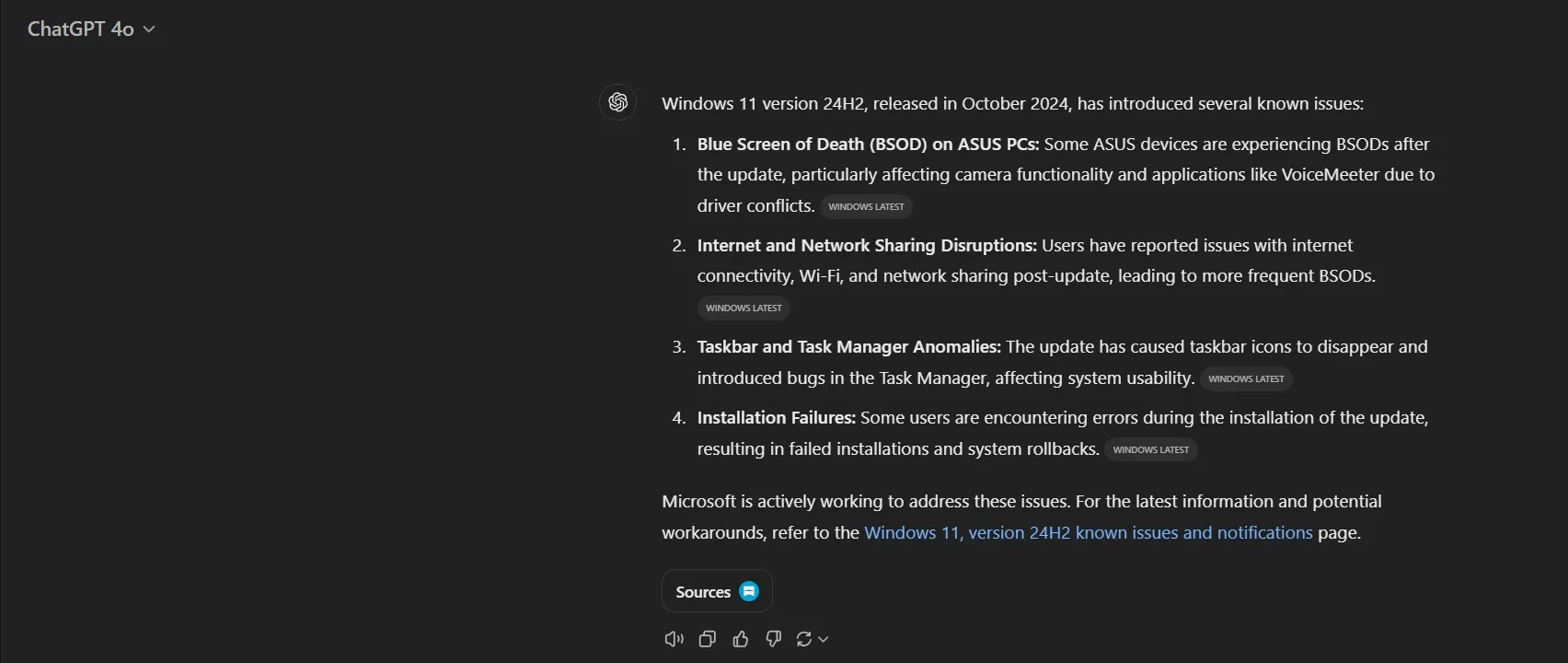
For instance, when we prompted ChatGPT’s search regarding wallpapers for Windows 11, it presented some images, albeit of low quality, that directly linked back to Bing’s resources. One particular linked resource from Bing utilized the domain se4.mm.bing.net, strongly indicating that ChatGPT’s search is significantly dependent on Bing.
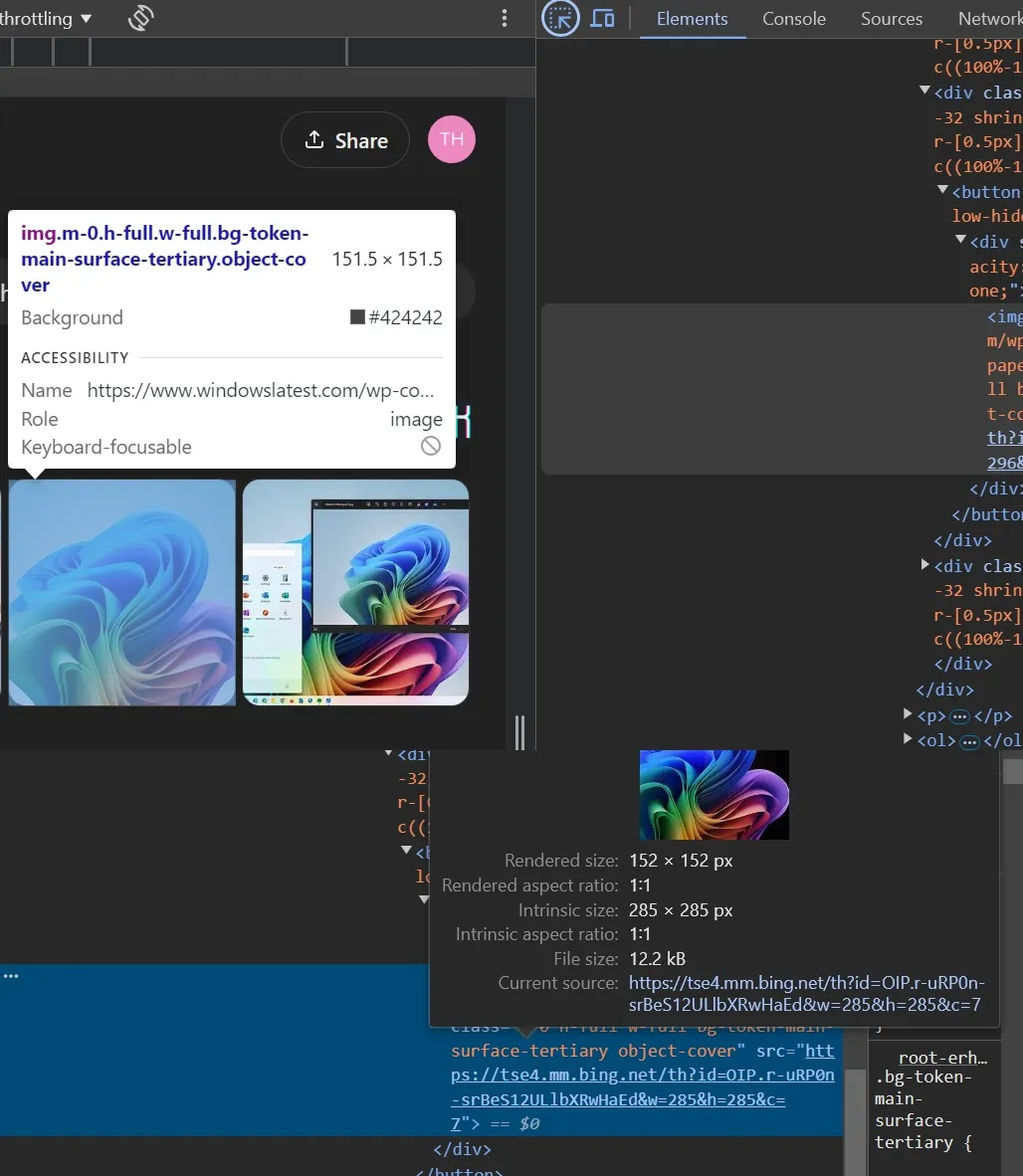
OpenAI indicates that its search mechanism employs a refined model of GPT-4o. It has also been trained using synthetic data generation methods, which strive to mimic real-world data through algorithms. Nonetheless, OpenAI has admitted to collaborating with external search providers like Bing to inform a portion of its search results.
However, the exact contribution of Bing remains undisclosed.
“ChatGPT search utilizes third-party search providers alongside content sourced directly from our partners to deliver information to users,” as stated in a blog post by OpenAI.
Contrary to OpenAI’s assertions, our findings suggest that the ChatGPT search function is reliant predominantly on Bing’s search index.
Should Google Search Be Replaced by ChatGPT?
During our evaluation of the ChatGPT search, we encountered a pop-up prompting us to download the ChatGPT search extension from the Chrome Web Store.
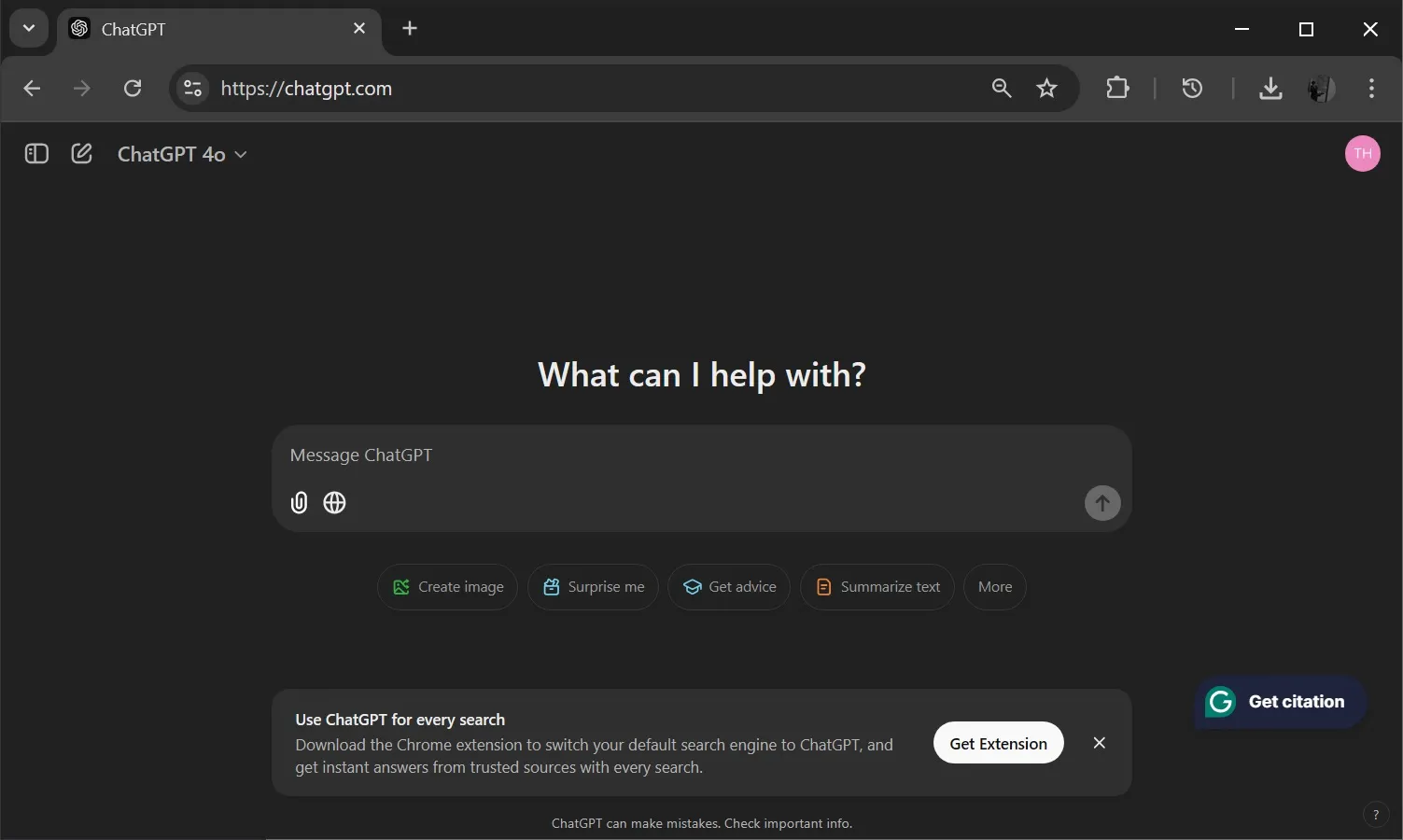
The screenshot above demonstrates that ChatGPT’s website encourages users to adopt the search extension, which could replace traditional search engines. In this context, OpenAI subtly challenges Google, which currently dominates the search market with approximately 90% ownership.
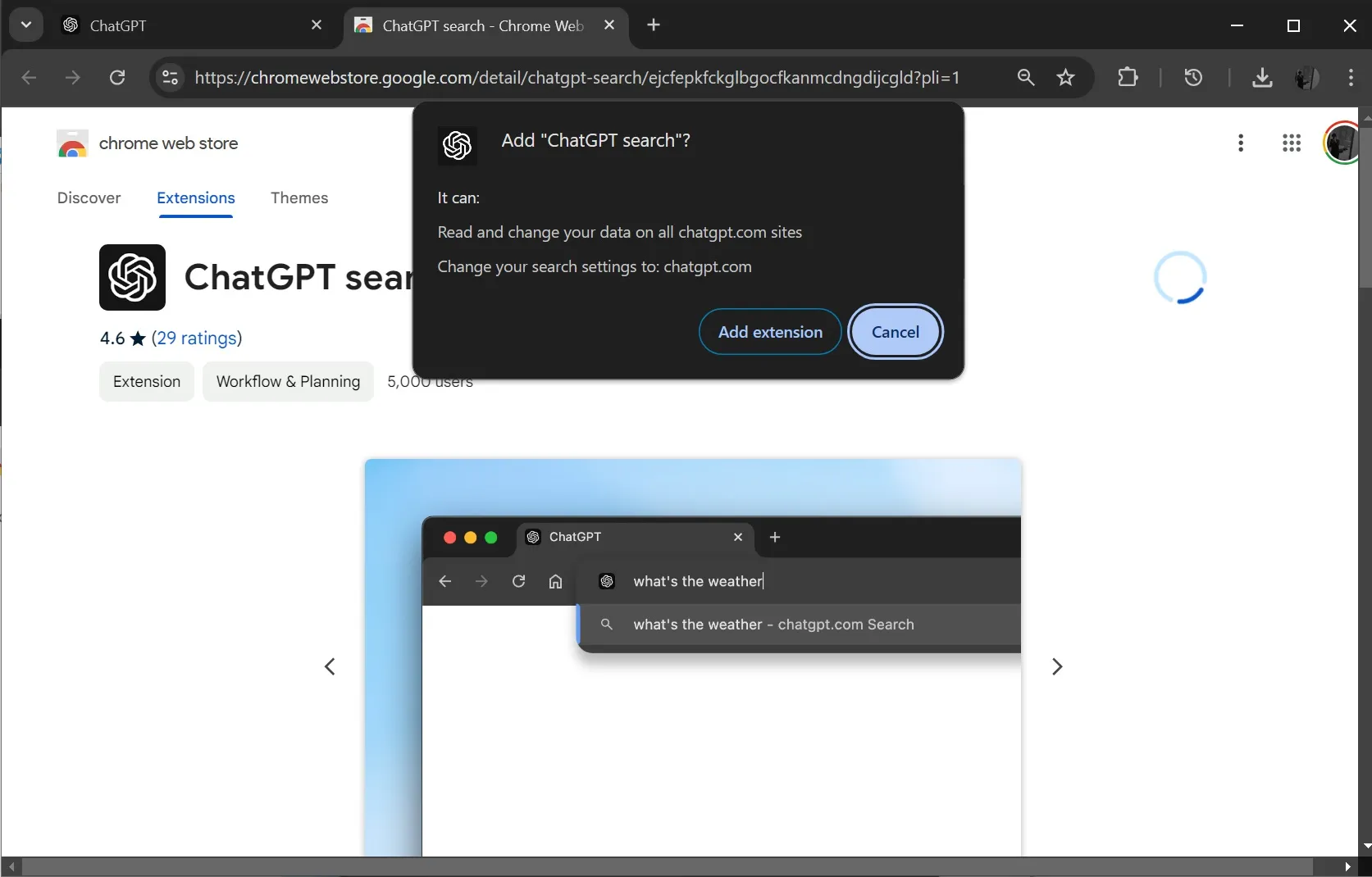
Upon clicking on the Download button, users are directed to the Chrome Web Store, where the extension can be found. By selecting “Add to Chrome,” a pop-up window prompts users to confirm if they wish to alter their search settings to incorporate ChatGPT’s search engine.
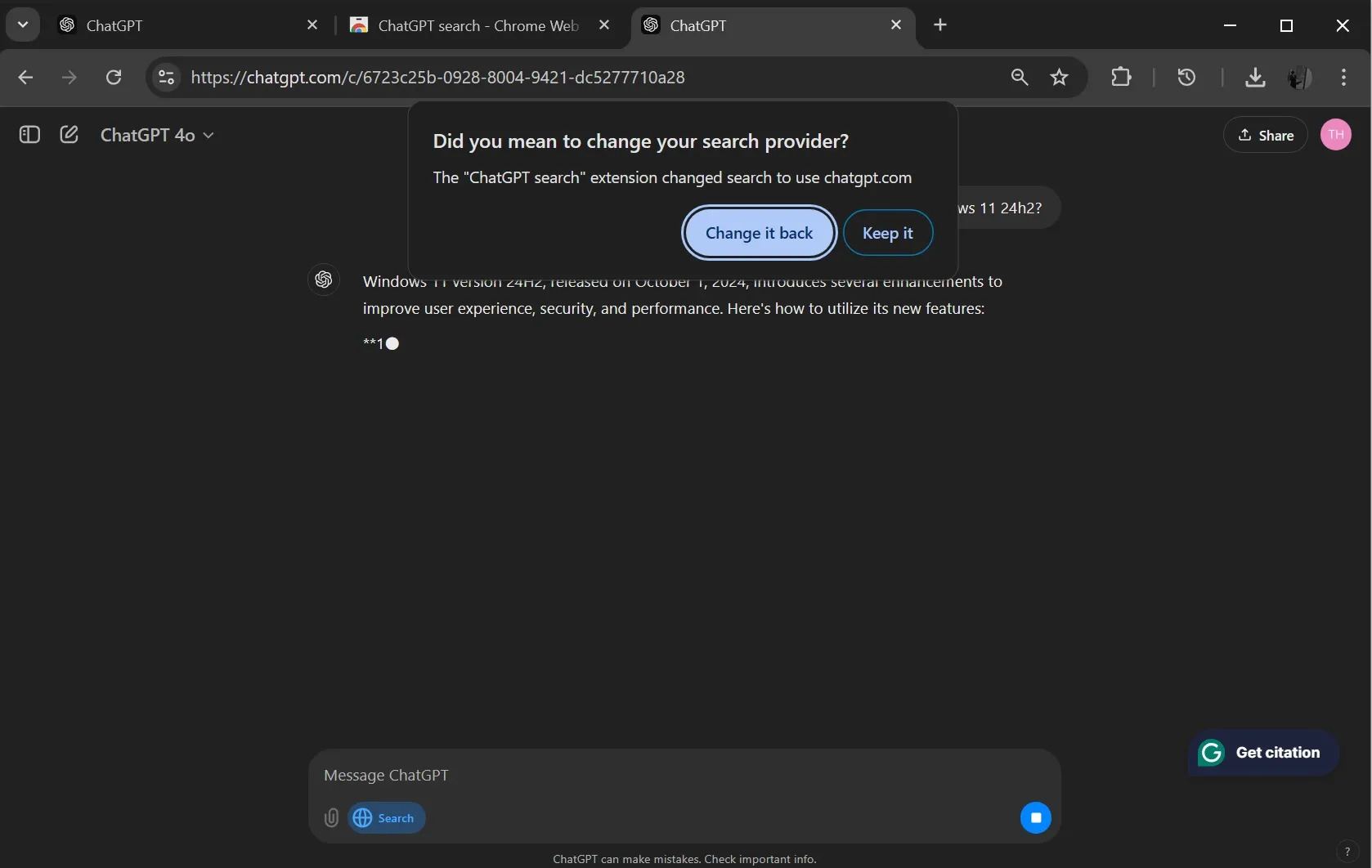
In a bid to thwart the ChatGPT search encroachment, Google introduces an additional pop-up alerting users to confirm their desire to maintain the updated search settings.
This pop-up presents options to either “Change it back” to the original search provider (Google) or “Keep it” with ChatGPT’s new configuration.
Previously, Microsoft attempted to persuade users to switch to Bing by promoting an extension using Windows 11 pop-ups, yet this strategy failed to secure substantial market share.
Image Credits: Windowslatest.com


Leave a Reply